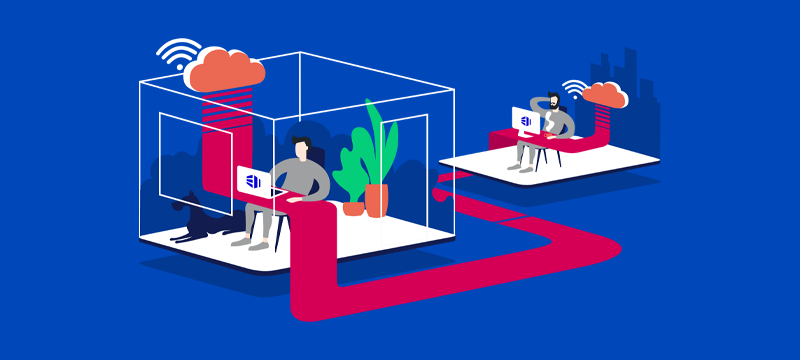Many companies use cloud-based platforms that enable their employees to work remotely, whether from home or out in the field. While this brings benefits to both the company and its employees, it does create challenges which need to be addressed for the company’s systems and data to remain secure. Here, we’ll look at the best practices to ensure cybersecurity for your remote employees.
- Vet your employees
If you are going to keep your data and systems secure, you need to know that the people who have access to it are trustworthy. Vetting employees can highlight anyone with a background that makes you think twice about giving them access. This doesn’t merely relate to someone’s criminal history; it also means looking at employees who have a record of flouting the company’s IT policy. - Train your employees
All employees can pose a security risk if they do not understand how to keep your system and data safe. While most companies undertake cybersecurity training for their staff, there are differences between using an in-house system which is not connected to the internet and a remote system which is. If you have recently begun to implement remote working, you will need to update your training to cover the new procedures and best practices that your employees need to follow. - Store remote user data securely
If a hacker gets hold of information about your employees, such as their usernames, passwords and privileges, it makes it very easy for them to undertake even wider and more damaging hacks. For this reason, the data you keep on these employees should be stored very securely. - Provide your own devices
While many companies operate a Bring Your Own Device (BYOD) policy, this gives you far less control over security. As the device your staff access your system with is also for personal use, you are unable to manage how that device is used or even who it is used by. If your employee lends their laptop to their child who unwittingly clicks on a malicious link, your data may be put at immediate risk.
Although it is more expensive, providing your own devices means you can set up firewalls and security settings in-house, install antivirus and internet security, and ensure that the employees are obliged to follow security protocols when using the devices. - Know where devices are
One of the biggest issues with remote working is that lots of devices get lost. Even the UK government lost over 2000 devices in the year up to June 2019, nearly 800 of which belonged to the Ministry of Defence. For this reason, devices must be fitted with a location finder, be securely locked and, where possible, be set up for remote deletion. - Secure internet connections
Where your employee connects to the internet can also be an issue. Public wi-fi hotspots, for example, can be easy to hack into and this makes it possible for data transmitted across them to be stolen. Although you may insist employees do not connect from an insecure connection, you can further increase security by preventing company data being accessible when the device is not logged into a secure network. - Encrypt data and emails
Encryption prevents data from being stolen when it’s in transit or at rest, so even if a hacker gets to the data, they will not be able to access it. Using VPNs, SSL and TLS are important ways to protect your data, as are Personal Signing Certificates that encrypt emails and their attachments. - Two-factor and multi-factor authentication
No matter how unique and strong username and passwords are, on their own, they are not robust enough to guarantee that whoever is logging in to your system is who they say they are. Adding further levels of security, such as a passcode sent to a user’s mobile phone or a biometric fingerprint scan, offer a far greater degree of authentication that can prevent hackers from getting access. - Control access privileges
Limiting what employees can access on your system also limits what a cybercriminal can access if they hack into an employee’s account. By setting privileges so that employees only have access to the information they need to carry out their work, you minimise the risk of data being stolen or the system being taken down. - Use a secure cloud provider
Your cloud provider can provide significant help in keeping your system and data safe. At eukhost, our team can develop and implement a security policy that meets both your internal and regulatory requirements. We use next-gen FortiGate firewalls with built-in intrusion prevention systems and in-flow virus protection, while also offering extensive VPN features, server and network monitoring, personal signing and SSL certificates, application firewall configuration, DDoS protection, email security, industry-leading remote, encrypted backups and more.
Conclusion
Remote working provides companies with opportunities to save money, improve collaboration, offer flexible working conditions and cope with crises like Coronavirus. However, it is critical that systems and data remain secure. Hopefully, the ten points raised here will show you ways that such security can be put in place.
For more information about our secure cloud solutions, visit our cloud hosting or enterprise hosting pages.


